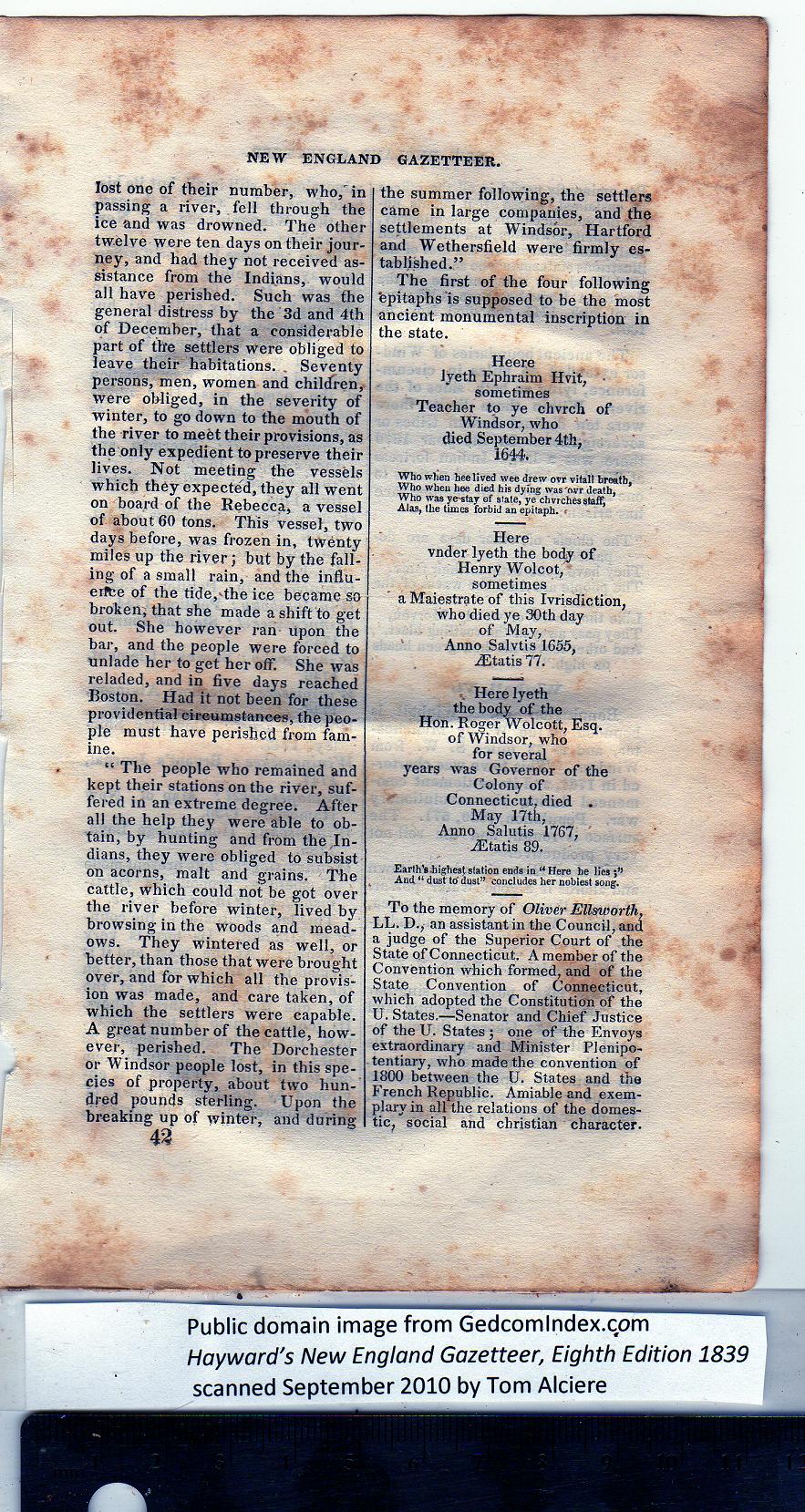|
lost one of their number, who,' in
passing a river, fell through the
ice and was drowned. The other
twelve were ten days on their jour-
ney, and had they not received as-
sistance from the Indians, would
all have perished. Such was the
general distress by the 3d and 4th
of December, that a considerable
part of the settlers were obliged to
leave their habitations. . Seventy
persons, men, women and children,
were obliged, in the severity of
winter, to go down to the mouth of
the river to meet their provisions, as
the only expedient to preserve their
lives. Not meeting the vessels
which they expected, they all went
on board of the Rebecca, a vessel
of about 60 tons. This vessel, two
days before, was frozen in, twenty
miles up the river; but by the fall-
ing of a small rain, and the influ-
erfce of the tide,fthe ice became so
broken, that she made a shift to get
out. She however ran upon the
bar, and the people were forced to
unlade her to get her off. She was
reladed, and in five days reached
Boston. Had it not been for these
providential circumstances, the peo-
ple must have perished from fam-
ine.
“ The people who remained and
kept their stations on the river, suf-
fered in an extreme degree. After
all the help they were able to ob-
tain, by hunting and from the In-
dians, they were obliged to subsist
on acorns, malt and grains. The
cattle, which could not be got over
the river before winter, lived by
browsing in the woods and mead-
ows. They wintered as well, or
better, than those that were brought
over, and for which all the provis-
ion was made, and care taken, of
which the settlers were capable.
A great number of the cattle, how-
ever, perished. The Dorchester
or Windsor people lost, in this spe-
cies of property, about two hun-
dred pounds sterling. Upon the
breaking up of winter, and during
the summer following, the settlers
came in large companies, and the
settlements at Windsor, Hartford
and Wethersfield were firmly es-
tablished.” |
The first of the four following
'epitaphs is supposed to be the most
ancient monumental inscription in
the state.
Heere
lyeth Ephraim Hvit,
sometimes
Teacher to ye chvrch of
Windsor, who
died September 4th,
1644.
Who when hee lived wee drew ovr vital? breath,
Who when hee died his dying was 'ovr death,
Who was ye-stay ef state, ye chvrches staff,
Alas, the tunes forbid an epitaph. <
Here
vnder lyeth the body of
Henry Wolcot,
sometimes
a Maiestrate of this Ivrisdiction,
who died ye 30th day
of May,
Anno Salvtis 1G55,
iEtatis 77.
Here lyeth
the body of the
Hon. Roger Wolcott, Esq.
of Windsor, who
for several
years was Governor of the
Colony of
Connecticut, died .
May 17th,
Anno Salutis 1767,
.Etatis 89.
Barth’s .highest slation ends in “ Here he lies
And “ dust td dust” concludes her noblest song.
To the memory of Oliver Ellsworth,
LL. D., an assistant in the Council, and
a judge of the Superior Court of the
State ofConnecticut. Amember of the
Convention which formed, and of the
State Convention of Connecticut,
which adopted the Constitution of the
U. States.—Senator and Chief Justice
of the U. States j one of the Envoys
extraordinary and Minister Plenipo-
tentiary, who made the convention of
1800 between the U. States and the
French Republic. Amiable and exem-
plary in all the relations of the domes-
tic, social and Christian character. |
